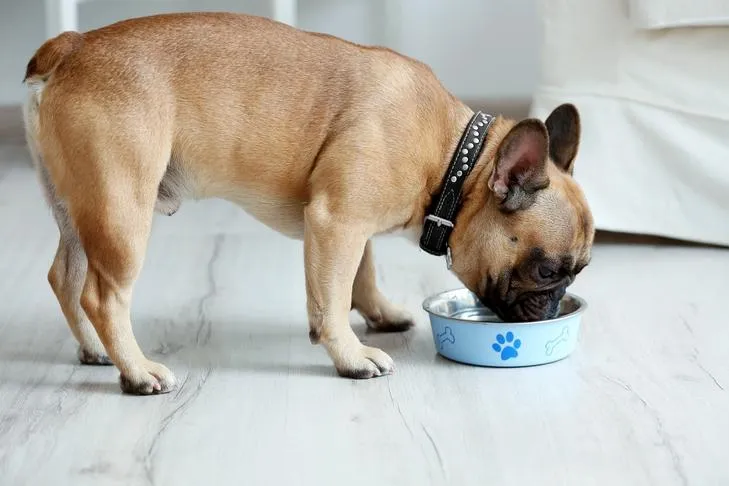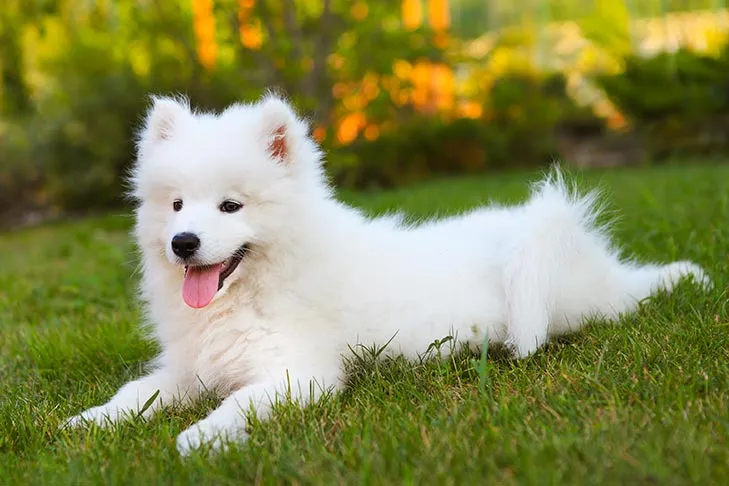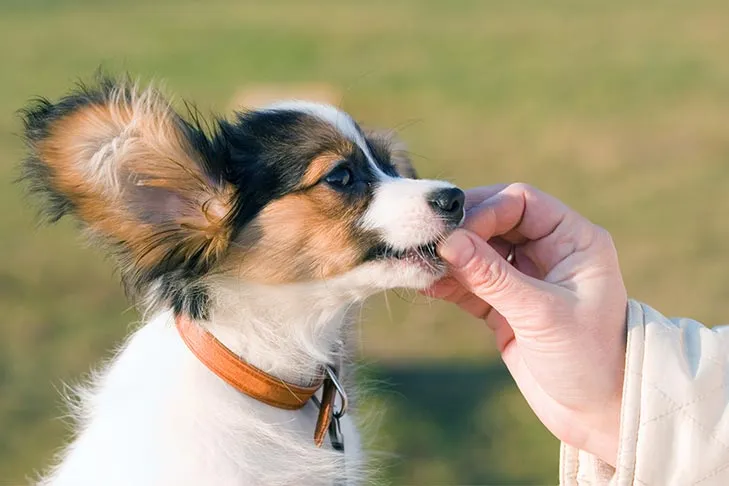As loving pet parents, we often enjoy sharing our lives, and sometimes even our meals, with our canine companions. However, what’s perfectly safe and nutritious for humans can sometimes be harmful, or even toxic, to dogs. Understanding the distinctions between what your dog can and cannot eat is crucial for their health and well-being. This guide aims to provide you with a comprehensive list of what dogs can and cannot eat, ensuring you can make informed decisions about your furry friend’s diet and avoid potential hazards.
Before offering any human food to your dog, it’s always best to be knowledgeable about its safety. Even healthy human foods should only be given in moderation as treats, not as a primary food source, to maintain a balanced diet for your dog.
Human Foods Your Dog Can Safely Enjoy (in Moderation)
Many human foods can be safely incorporated into your dog’s diet as occasional treats, offering additional nutrients or simply a delightful change of pace. However, portion control and preparation are key to ensure these foods remain beneficial rather than detrimental. Always introduce new foods slowly and observe your dog for any adverse reactions.
Bread
Small amounts of plain bread are generally safe for dogs, provided it contains no harmful spices, especially no raisins. While it won’t offer significant health benefits, it’s also not inherently bad. However, it’s high in carbohydrates and calories, similar to humans, so moderation is crucial to prevent weight gain. Homemade bread is often a better choice than store-bought varieties, which can contain unnecessary preservatives. It’s best reserved for an occasional, minimal treat.
Cashews
Cashews can be given to dogs in small quantities. They are a source of calcium, magnesium, antioxidants, and protein. Despite being lower in fat than some other nuts, overfeeding cashews can still contribute to weight gain. Always ensure cashews are unsalted, as excessive salt intake can be harmful to dogs. A few unsalted cashews can make a healthy, occasional treat.
Cheese
Most dogs can enjoy cheese in small to moderate amounts, provided they are not lactose intolerant (a rare but possible condition in dogs). Cheese can be a highly palatable treat, but many varieties are high in fat. Opt for lower-fat options like cottage cheese or mozzarella. Many dogs also appreciate specialized dried cheese chews designed specifically for them.
 An All American Dog rests its head on a kitchen table, looking intently at a piece of cheese.
An All American Dog rests its head on a kitchen table, looking intently at a piece of cheese.
Coconut
This tropical fruit contains lauric acid, which is known for its ability to help combat bacteria and viruses. Coconut can also be beneficial for fresh breath and improving skin conditions such as hot spots, flea allergies, and itchy skin. Both coconut milk and coconut oil are safe for dogs. When feeding fresh coconut, always ensure the furry outer shell is completely removed to prevent choking or intestinal blockage.
Corn
Corn is a common and safe ingredient found in many commercial dog foods. It provides carbohydrates and some vitamins. However, the cob itself poses a significant risk. Dogs cannot digest corn cobs, and they can cause dangerous intestinal blockages. If you share corn with your dog, always ensure it is removed entirely from the cob.
Eggs
Cooked eggs are a safe and nutritious food for dogs, serving as an excellent source of protein and often recommended for soothing an upset stomach. It is vital to cook eggs thoroughly, as raw egg whites contain avidin, which can interfere with biotin absorption, potentially leading to a biotin deficiency over time. Scrambled or hard-boiled eggs, without any seasonings, are ideal.
Fish
Fish offers a wealth of good fats and amino acids, providing a beneficial boost to your dog’s health. Salmon and sardines are particularly advantageous. Salmon is rich in vitamins and protein, while sardines contain soft, digestible bones that provide extra calcium. When feeding fish, always remove all tiny bones, which can be a choking hazard or cause internal injury. An exception is sardines, where the bones are typically soft enough to be safe.
It’s crucial to never feed your dog uncooked or undercooked fish due to the risk of parasites. Only offer fully cooked and cooled fish. Limit fish intake to no more than twice a week to ensure a balanced diet.
Ham
While ham is generally safe for dogs to eat, it is not the healthiest option. It’s typically high in sodium and fat, which can be problematic in large quantities or as a regular part of their diet. A very small piece of plain, cooked ham as an occasional treat is acceptable, but it should not become a continuous habit due to its high salt and fat content.
 A French Bulldog diligently eats from a food bowl in a comfortable home setting.
A French Bulldog diligently eats from a food bowl in a comfortable home setting.
Honey
Honey is packed with numerous nutrients, including vitamin A, potassium, calcium, magnesium, copper, and various antioxidants. Feeding dogs small amounts of local honey may help alleviate seasonal allergies by gradually introducing small amounts of local pollen, which can build up immunity. Beyond consumption, honey can also be used topically as a natural treatment for minor burns and superficial cuts due to its antibacterial properties.
Milk
Dogs can drink milk, but caution is advised. While some dogs digest milk perfectly fine, others are lactose intolerant and may experience digestive upset, such as diarrhea or vomiting, after consuming dairy products. If you choose to offer milk, do so in very small quantities and monitor your dog for any signs of intolerance. For most dogs, water remains the best and safest hydration choice.
Peanut Butter
Peanut butter can be an excellent source of protein, healthy fats, vitamins B and E, and niacin for dogs. The healthiest option is raw, unsalted peanut butter without any added sugars. Critically, always read the label carefully to ensure the peanut butter does not contain xylitol. Xylitol is an artificial sweetener that is highly toxic to dogs and can cause a rapid drop in blood sugar, liver failure, or even death.
Peanuts
Unlike macadamia nuts or almonds, plain peanuts are safe for dogs. They are rich in healthy fats and proteins that can be beneficial for your dog’s diet. However, like cashews, peanuts should be given in moderation to avoid excessive fat intake, which can lead to pancreatic issues. It’s also essential to avoid salted peanuts, as too much salt is difficult for a dog’s kidneys to process.
Popcorn
Unsalted, unbuttered, air-popped popcorn can be an acceptable treat for your dog in moderation. It contains riboflavin and thiamine, which support eye health and digestion, along with small amounts of iron and protein. Ensure all kernels are fully popped before offering them to your dog, as unpopped kernels can pose a choking hazard or become lodged in their teeth.
Pork
Pork is a highly digestible protein source, abundant in essential amino acids. While it contains more calories per pound compared to some other meats, it can be a valuable addition to a dog’s diet. In some cases, pork may also be less likely to cause allergic reactions in pets compared to more common proteins. Always serve plain, cooked pork without seasonings, and remove excess fat and bones.
Quinoa
Quinoa, a complete protein, has become a popular ingredient in high-quality dry dog foods. Its robust nutritional profile makes it a healthy and often preferred alternative to starches like corn, wheat, and soy, which are frequently used in kibble formulations. It provides fiber, protein, and essential amino acids.
 A Samoyed puppy lies peacefully in green grass outdoors, enjoying the natural environment.
A Samoyed puppy lies peacefully in green grass outdoors, enjoying the natural environment.
Salmon
As previously mentioned, fully cooked salmon is an outstanding source of protein, healthy fats, and amino acids. It actively promotes joint and brain health and significantly boosts a dog’s immune system. However, raw or undercooked salmon harbors parasites that are highly dangerous to dogs, potentially causing severe illness with symptoms like vomiting, diarrhea, and dehydration, and in extreme cases, even death. Thoroughly cooking salmon effectively eliminates these parasites, making it safe for consumption.
Shrimp
A few shrimp given occasionally are generally fine for your dog, but strict preparation is necessary. They must be fully cooked, and the entire shell, including the tail, head, and legs, must be completely removed. Shrimp are rich in antioxidants, vitamin B-12, and phosphorus, while being low in fat, calories, and carbohydrates, making them a relatively healthy, lean treat.
Tuna
Dogs can eat tuna, but only in very small, infrequent amounts. When prepared cooked and fresh, tuna is an excellent source of omega-3 fatty acids, which are beneficial for heart and eye health. Canned tuna, however, can contain small amounts of mercury and sodium, which should be avoided in excess. A little bit of canned tuna (packed in water, not oil, and without any added spices) and its juice now and then is acceptable.
Turkey
Plain, cooked turkey is safe for dogs. It’s important to remove any excess fat and skin from the meat before feeding, as these can be difficult to digest or too rich. Additionally, always check carefully for bones. Poultry bones can easily splinter during digestion, leading to dangerous blockages or even tears in the intestines. Any turkey prepared with excessive salt, seasonings, onions, or garlic should never be given to dogs.
Wheat or Grains
Contrary to popular belief, a grain-free diet isn’t necessary for all dogs. Grains like wheat and corn are perfectly acceptable for most dogs and serve as valuable sources of protein, essential fatty acids, and fiber. However, if your dog has known allergies or sensitivities to specific grains, it might be best to avoid them. Always consult your veterinarian for personalized dietary recommendations based on your dog’s individual needs.
Yogurt
Plain yogurt is a perfectly acceptable and often beneficial snack for dogs. The active bacteria found in yogurt can act as probiotics, helping to strengthen and support a healthy digestive system. However, as with milk, some dogs may have difficulty digesting dairy products. If your dog tolerates it, plain, unsweetened yogurt is the best choice. Avoid any yogurts with added sugar, artificial sweeteners (especially xylitol), or fruit flavorings.
 A small Papillon puppy gently and carefully takes a treat from a human hand.
A small Papillon puppy gently and carefully takes a treat from a human hand.
Critical: Human Foods Your Dog Must Never Eat
While many human foods offer safe and healthy treat options, an equally important list of what dogs can and cannot eat includes those that are highly toxic and dangerous. It’s essential for every dog owner to be aware of these foods to prevent serious illness or even fatal outcomes. Always keep these items out of your dog’s reach and consult your veterinarian immediately if you suspect your dog has ingested any of these toxic substances. Understanding what foods can you not feed your dog is just as vital as knowing the safe options.
Chocolate
Chocolate contains theobromine and caffeine, both of which are toxic to dogs. The severity of poisoning depends on the type of chocolate (darker chocolate and baking chocolate are more dangerous) and the amount consumed relative to the dog’s size. Symptoms can range from vomiting and diarrhea to tremors, seizures, heart problems, and even death.
Grapes and Raisins
Even small amounts of grapes and raisins can cause acute kidney failure in dogs, though the exact toxic substance remains unknown. All forms—fresh, dried, cooked, or in baked goods—are dangerous. Symptoms include vomiting, lethargy, diarrhea, and decreased urination. It’s critical to keep all grape and raisin products completely away from dogs.
Onions, Garlic, and Chives
These alliums, whether raw, cooked, or powdered, are toxic to dogs. They contain compounds that can damage a dog’s red blood cells, leading to anemia. Garlic is generally more potent than onions. Symptoms may include weakness, lethargy, pale gums, and dark urine, often appearing a few days after ingestion.
Xylitol (Artificial Sweeteners)
Xylitol is a sugar substitute found in many sugar-free products like gum, candy, toothpaste, peanut butter, and certain baked goods. It is extremely toxic to dogs, causing a rapid and severe drop in blood sugar (hypoglycemia) and liver failure. Even small amounts can be deadly. Always check ingredient labels for xylitol before sharing human foods. This is one of the most important things to remember about what are foods dogs can’t eat.
Avocado
Avocado contains a fungicidal toxin called persin. While relatively harmless to humans, persin can cause vomiting and diarrhea in dogs. The highest concentration is in the skin and pit, but it’s best to avoid feeding any part of the avocado to your dog.
Alcohol
Alcohol, in any form, is highly toxic to dogs. Even small amounts can cause significant drops in blood sugar, blood pressure, and body temperature. Symptoms include vomiting, disorientation, difficulty breathing, tremors, and coma. Never give alcohol to your dog.
Caffeine
Caffeine, found in coffee, tea, energy drinks, chocolate, and some medications, is dangerous for dogs. It stimulates the nervous system and heart, leading to symptoms like hyperactivity, restlessness, elevated heart rate, tremors, and seizures.
Macadamia Nuts
Macadamia nuts are another highly toxic food for dogs. While the exact toxic agent is unknown, ingestion can cause weakness, tremors, vomiting, fever, and depression. These symptoms usually appear within 12 hours of ingestion and typically last for 24-48 hours.
Cooked Bones
While raw bones can be part of some diets (under strict veterinary guidance), cooked bones are a definite no-go. Cooked bones become brittle and can splinter easily, posing severe risks such as choking, internal punctures of the digestive tract, or intestinal blockages. Always remove bones from any meat you share with your dog.
Yeast Dough
Raw yeast dough is dangerous because it can expand in a dog’s stomach, causing painful bloating and potentially a life-threatening condition called gastric dilatation-volvulus (GDV or bloat). The yeast also produces alcohol as it ferments, leading to alcohol poisoning. This highlights what shouldn’t you feed your dog in terms of raw ingredients.
Salt (Excessive)
While dogs need some sodium, too much salt can be harmful, leading to sodium ion poisoning. Symptoms include excessive thirst and urination, vomiting, diarrhea, lethargy, tremors, and seizures. Avoid feeding salty snacks like chips, pretzels, and excessive table scraps.
Fatty Foods
Foods high in fat, such as bacon grease, excessive butter, or fatty meat trimmings, can cause pancreatitis in dogs. Pancreatitis is an inflammation of the pancreas that can be very painful and lead to serious health complications, requiring immediate veterinary attention.
When in Doubt: Always Consult Your Vet
Navigating the world of human foods for your canine companion can be complex, and even with a comprehensive guide, questions may arise. When you’re unsure about the safety of a particular food, or if your dog has consumed something questionable, the safest course of action is always to contact your veterinarian immediately. They can provide expert advice tailored to your dog’s specific health needs and guide you on the best steps to take. For further reading on beneficial food options, explore articles like what is the best vegetable for dogs to eat.
Remember, your veterinarian is your best resource for maintaining your dog’s optimal health and nutrition.
Conclusion
Understanding what dogs can and cannot eat is a fundamental aspect of responsible pet ownership. While sharing certain human foods can be a delightful way to bond with your furry friend, vigilance is key. Always prioritize your dog’s health by offering safe foods in moderation, avoiding all known toxic ingredients, and ensuring proper preparation. By staying informed and consulting your veterinarian when in doubt, you can help ensure your dog enjoys a happy, healthy, and safe diet for years to come. Your dog relies on you to make the best dietary choices, so be their advocate and prioritize their well-being above all else.
